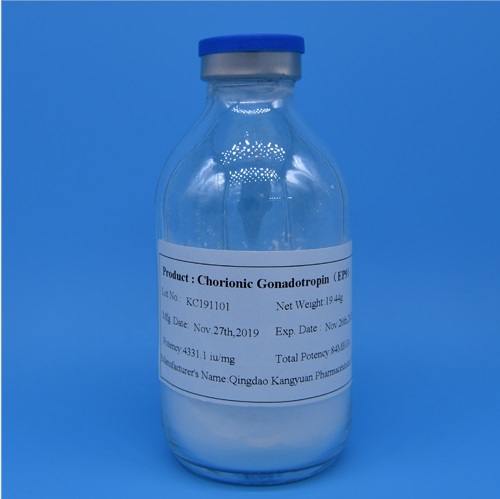In the realm of reproductive medicine, Urofollitropin and Human Menopausal
Gonadotropin have emerged as key players in assisting couples on their journey
towards parenthood. These medications, often used in assisted reproductive
techniques, possess unique properties that stimulate hormonal balance and
promote successful ovulation. This article aims to explore the distinct features
and functions of Urofollitropin and Human Menopausal Gonadotropin, highlighting
their significant role in unlocking the path to fertility.
Urofollitropin: Urofollitropin, also known as follicle-stimulating hormone
(FSH), acts by stimulating the ovaries in women. By interacting with the FSH
receptors, Urofollitropin facilitates the growth and development of ovarian
follicles, which contain the eggs. This hormone is administered through
injection to enhance ovulation and increase the chances of successful
conception. Urofollitropin's precise dosage and timing are crucial in ensuring
optimal outcomes during fertility treatments.

Human Menopausal Gonadotropin (hMG): Human Menopausal Gonadotropin, a
combination of luteinizing hormone (LH) and FSH, mimics the hormones naturally
produced by the pituitary gland. This medication plays a vital role in
stimulating the release of mature eggs from the ovaries. By triggering
ovulation, hMG offers a natural boost to fertility treatments, such as in vitro
fertilization (IVF) or intrauterine insemination (IUI). Close monitoring
throughout the treatment process ensures the ideal dosage and timing of hMG,
maximizing the chances of a successful pregnancy.
Usage and Effectiveness: Urofollitropin and Human Menopausal Gonadotropin,
when used as part of a comprehensive fertility treatment plan, have showcased
remarkable efficacy in assisting couples struggling with infertility. These
medications, in conjunction with precise medical supervision, help establish
proper hormonal balance, stimulate ovulation, and improve the chances of
successful conception.
Patient Monitoring and Support: Throughout the treatment journey, close
monitoring of patients using Urofollitropin and Human Menopausal Gonadotropin is
essential. Regular ultrasounds and hormonal assessments allow healthcare
professionals to track follicle development, adjust dosage if necessary, and
ensure patient safety. Additionally, emotional support and counseling play a
crucial role, as fertility treatments can be emotionally challenging for
individuals and couples. Providing a comprehensive support system ensures that
patients undergo treatment with confidence and optimism.
Urofollitropin and Human Menopausal Gonadotropin have revolutionized the
field of reproductive medicine, offering hope to couples aspiring to conceive.
With their unique hormonal stimulation properties and precise administration,
these medications unlock the path to fertility by promoting ovulation and
increasing the chances of successful conception. By combining medical expertise,
patient monitoring, and emotional support, healthcare professionals can help
couples navigate this journey with confidence, bringing them closer to realizing
their dream of parenthood.